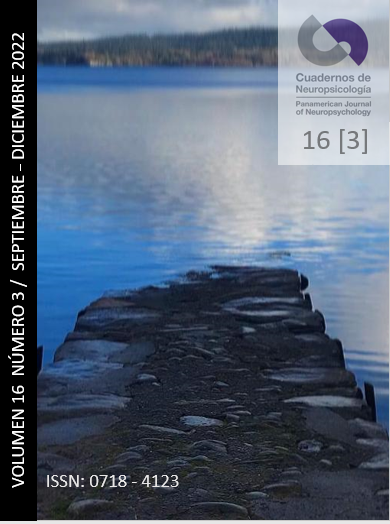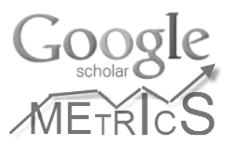Las altas habilidades en el dominio especÃfico de la matemática: una revisión sistemática de los hallazgos empÃricos en neurocognición
Abstract
R E S U M E N
Este artÃculo tiene como propósito brindar una perspectiva sobre el desarrollo en investigación del estudio de las altas habilidades, haciendo énfasis en el dominio especÃfico de la matemática. A partir de un enfoque de búsqueda de bibliografÃa especÃfica, con la metodologÃa PRISMA, realizamos una revisión sistemática de la literatura existente sobre esta temática en el decenio 2011-2020 en colecciones internacionales. Examinamos 15 artÃculos de corte empÃrico sobre altas habilidades en matemática en un área principal: la neurocognición. Se reunieron hallazgos relevantes para identificar las habilidades cognitivas que predicen las altas habilidades en matemática y los mecanismos neurobiológicos subyacentes. Presentamos de manera ordenada aquellas manifestaciones empÃricas que aporten a la definición de un perfil neurocognitivo de las personas con altas habilidades en matemática. El análisis de estos resultados sugiere alternativas para la identificación temprana de los estudiantes con altas habilidades en matemática y posterior desarrollo de su talento. Finalmente, planteamos algunos vacÃos que deja pendiente la literatura para atender en futuras investigaciones.
Palabras Clave: superdotación matemática; altas habilidades en matemática; talento matemático; educación matemática; neurocognición; revisión sistemática.
Â
A B S T R A C T
The purpose of this article is to provide a perspective on high ability development research, emphasizing the mathematics specific domain. Based on a specific bibliography search approach, with the PRISMA methodology, we carried out a systematic review of the existing literature on this subject in the 2011-2020 decade in international collections. We examined 15 empirical articles on high ability in mathematics in a main area: neurocognition. Relevant findings were brought together in order to identify the cognitive abilities that predict high mathematical abilities and the underlying neurobiological mechanisms. We present in an orderly manner those empirical manifestations that contribute to the definition of a neurocognitive profile of people with high abilities in mathematics. The analysis of these results suggests alternatives for the early identification of the students with high abilities in mathematics and the subsequent development of their talent. Finally, we propose some literature gaps to address in future research.
Keywords: mathematical giftedness; high abilities in mathematics; mathematical talent; mathematics education; neurocognition; systematic review.
Â
R E S U M O
O objetivo deste artigo é fornecer uma perspectiva sobre o desenvolvimento da pesquisa do estudo das altas habilidades, enfatizando o domÃnio especÃfico da matemática. Com base em uma abordagem especÃfica de pesquisa bibliográfica, com a metodologia PRISMA, realizamos uma revisão sistemática da literatura existente sobre o assunto na década de 2011-2020 em coleções internacionais. Examinamos 15 artigos empÃricos sobre alta habilidade em matemática em uma área principal: neurocognição. Achados relevantes foram reunidos para identificar as habilidades cognitivas que predizem altas habilidades matemáticas e os mecanismos neurobiológicos subjacentes. Apresentamos de forma ordenada aquelas manifestações empÃricas que contribuem para a definição de um perfil neurocognitivo de pessoas com altas habilidades em matemática. A análise desses resultados sugere alternativas para a identificação precoce de alunos com altas habilidades em matemática e o posterior desenvolvimento de seu talento. Por fim, propomos algumas lacunas que a literatura deixa pendentes para serem abordadas em pesquisas futuras.
Palavras-chave: superdotação matemática; altas habilidades matemáticas; talento matemático; educação matemática; neurocognição; revisão sistemática.
Downloads
How to Cite
Issue
Section
License
Articles published in this journal are protected under the Creative Commons Attribution-NonCommercial-ShareAlike 4.0 International (CC BY-NC-SA 4.0) license. This means that authors retain full rights over their research and publications at all times. As a journal, we fully respect and promote the principles of open access established by this license, allowing the work to be shared, adapted, and distributed for non-commercial purposes, provided that appropriate credit is given to the authors and any derivative works are licensed under the same terms.
Authors are responsible for obtaining the required permission when they wish to reproduce part of the material (figures, etc.) from other publications.
Likewise, CNPs allows authors to host in their personal sites or other repositories that they deem convenient the Final and Definitive Version of the published article with the format assigned by the journal. In no case do we allow access to preprints of the article under evaluation or already published.
When submitting an article to CNPs you are aware that all the contents of CNPs are under a Creative Commons License. In which it is allowed to copy and share the contents freely, always making reference to the origin of the publication and its author.













